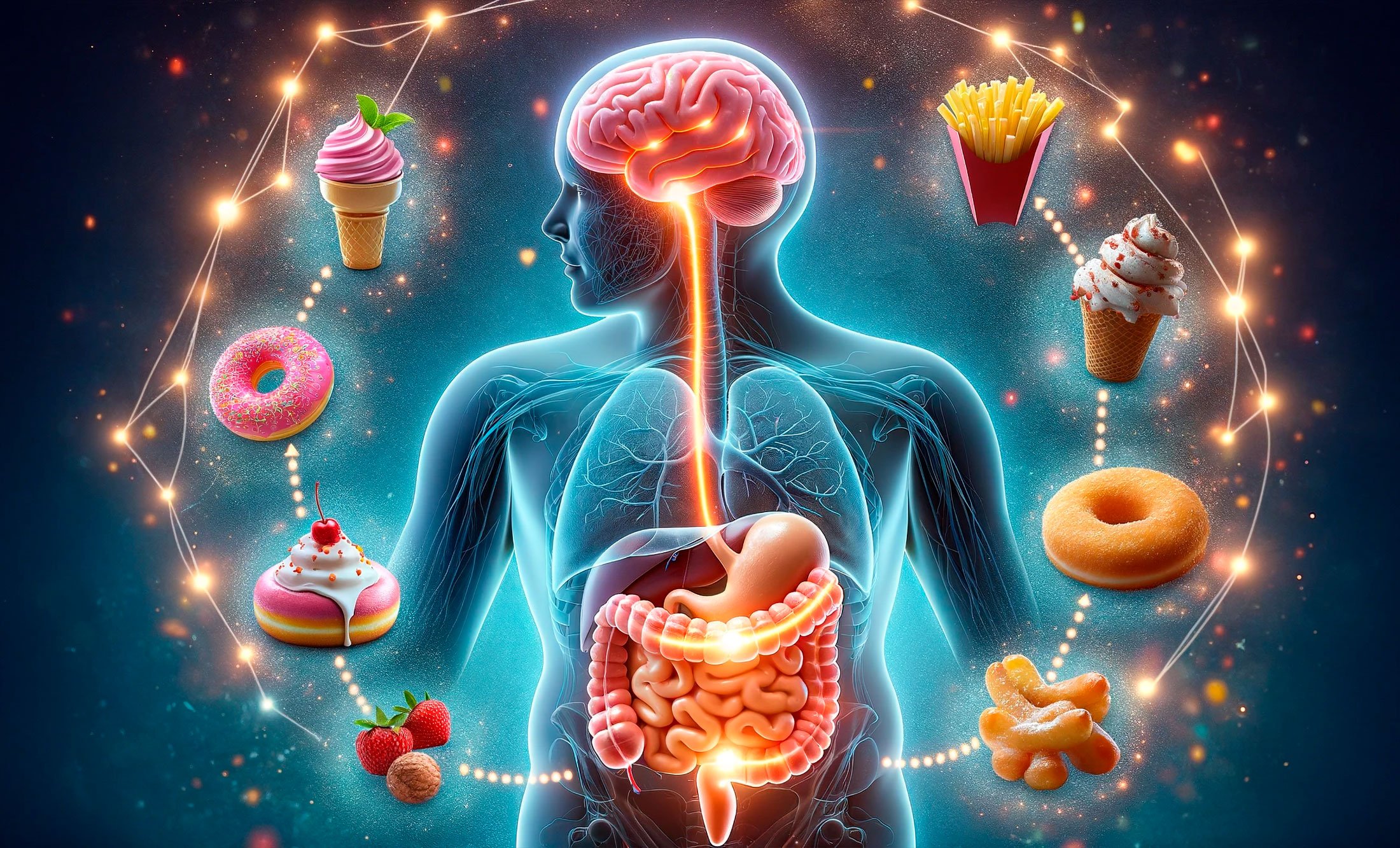The vagus nerve sends internal sensory information from the gut to the brain about the nutritional value of food. But, the molecular basis of the reward in the brain associated with what we eat has been incompletely understood.
Now, a new study published in Cell Metabolism by a team from the Monell Chemical Senses Center, unravels the internal neural wiring, revealing separate fat and sugar craving pathways, as well as a concerning result: Combining these pathways overly triggers our desire to eat more than usual.
https://www.sciencedirect.com/science/article/pii/S1550413123004667?via%3Dihub (open access)
Sugar should prob be regulated at least like Aspirin or maybe Alcohol
At the very least, regulated in quantity by the FDA. Sure, you can add some sugar to bread to help with the rising process, but not so much that it’s a cake. Added sugars is modern adulteration, there only to disguise the lack of quality in other ingredients or preparation.
It agitates me to no end why every bread product is loaded with sugar. I can tell immediately when someone uses pillsbury rolls, biscuts, crescent rolls. Even worse Hawaiian rolls which should have a little sweetness are stuffed with sugar to be sweater than everything else it’s just about pastry levels of sugar.
I was in my late 40s when I figured out that sourdough is called such because it isn’t loaded with sugar. If it isn’t obvious, I’m American.
I thought it was due to the extended wild fermentation process and additional lactic acid?
Yeah they’re wrong. Sourdough is fermented with a symbiotic (probs not literal symbiosis, biologists don’t kill me with Mr Killalot’s solution) culture of wild yeasts (some domesticated in starter for hundreds of years now so questionable name) and bacteria.
The yeast makes alcohol and the bacteria makes acids. Consequently the loaf is sour.
you could, and probably someone on this enormous earth does, add sugar and cook before it’s all used to make sweet and sourdough I guess.
It’s mindblowing how sugar (usually in the form of high fructose corn syrup) is added on most food products in the US, even on stuff that don’t really need them. I started being conscious and reading labels on the things I buy at the grocery store and it’s so hard to avoid the stuff.
No kidding, I remember buying a loaf of rye bread when I went to the US and being shocked that it tasted sweet. It’s rye bread, sweetness is not the flavour I was going for.
Its double sided, because it makes bad food taste better but also creates an addictive product
I agree. Let me add that it’s not added just to disguise the overall bad quality. It is added because the human body craves sugar. People find sweetened food more rewarding as was described in the article, and therefore they are more likely to buy it. Adding sugar is profitable.
Cool! Early days yet but seems promising.
I immensely dislike how healthy food consumption is this weird moral battleground while at the same time we basically give corporations free reign to manufacture powerfully incentivising unhealthy food. It’s like allowing someone to turn your whole city into a casino and then getting mad at people who develop gambling problems.
Increased understanding might lead to better regulation (I’m a cynic here because if you’re not mad at this point will anything make you want to crack down on junk food?), but hopefully at least better drugs for people that want help changing eating behaviours.
Great analogy. (BTW it’s “free rein”)
I’ve been telling people this for years based on (admittedly anecdotal) evidence I have collected by strictly controlling my neurodivergent daughter’s diet. I observed the behavioral effects while also charting the quality of stool samples. I consistently found a direct correlation between a good diet free of pesticides, the texture/quality of her stool, and the behavioral effects that followed them 1:1.
At this point, I well understand what she can and cannot eat. Sticking to her diet has MASSIVELY positive effects on all aspects of her more challenging neurodivergent behaviors. Furthermore, I found the same correlation at school: her teachers would send reports of massive improvement in attention span and the elimination of self injurious behaviors whenever we strictly stick to the diet and they also raise the alarm in the opposite direction when we don’t.
An episode of the podcast “Ologies” was what first taught me about the bidirectional communication between brain and vagus nerve in the gut.




